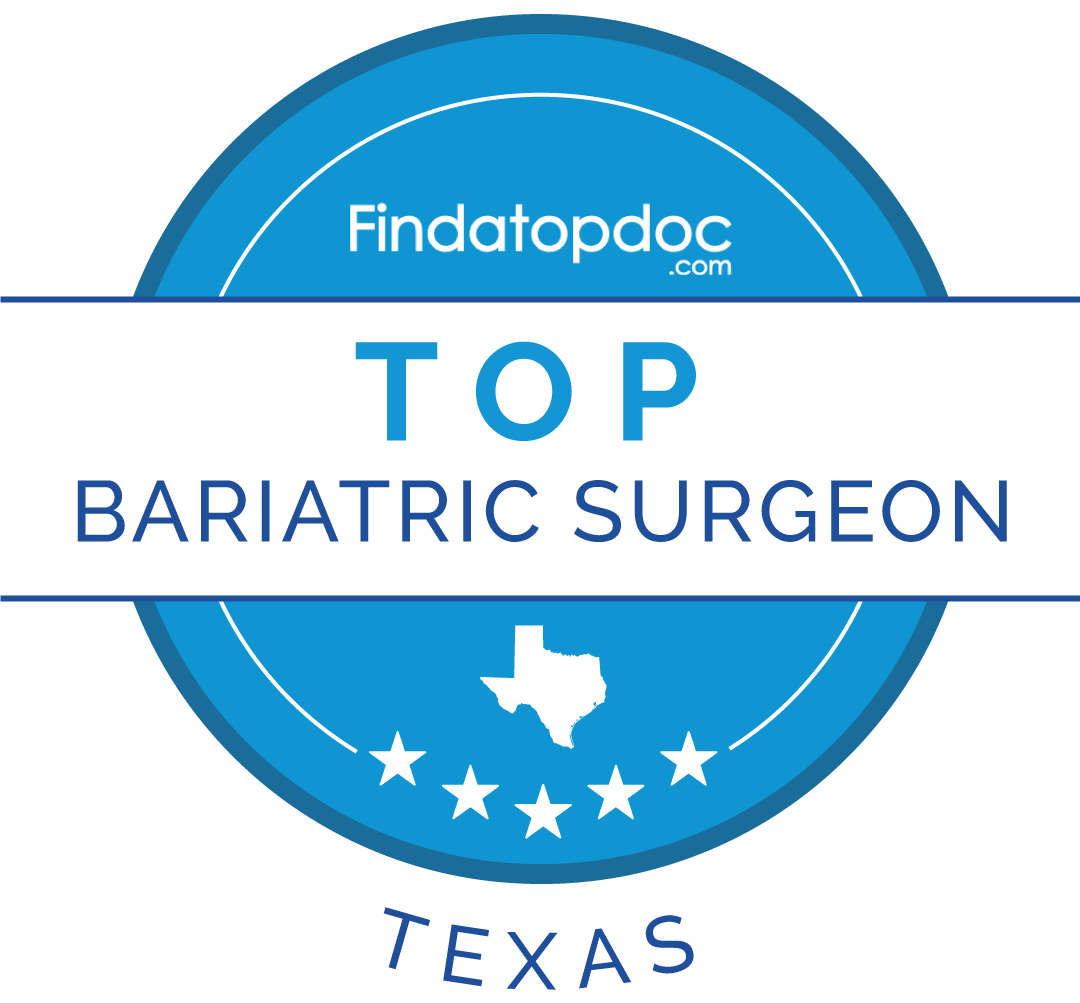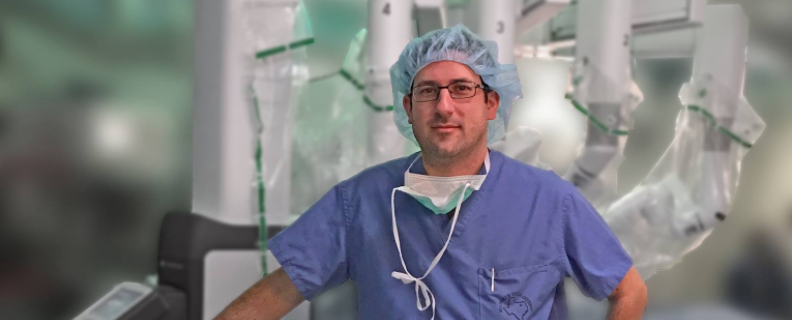

Dr. Michael Sutker, MD
Surgeon
7777 Forest Ln Suite A 331 Dallas TX, 75230
About
Dr. Sutker has been in practice at Medical City Dallas since 2014 and at Medical City McKinney since 2019. He is board-certified in general surgery. Dr. Sutker manages a wide range of surgical diseases. He specializes in treating conditions with minimally invasive techniques utilizing both standard laparoscopy and robotic-assisted laparoscopy. Dr. Sutker has specialty training in the surgical treatment of obesity, acid reflux, esophageal motility disorders, and paraesophageal hernias. He is skilled in the repair of abdominal wall defects, including inguinal, umbilical, ventral, and incisional hernias. Dr. Sutker also enjoys managing emergency surgical situations including gallbladder disease, appendicitis, and diverticulitis.
Dr. Michael Sutker, MD's Videos
Education and Training
MD at the University of Texas Southwestern Medical Center
Board Certification
American Board of Surgery
Provider Details

Dr. Michael Sutker, MD's Expert Contributions
Patient Education Series | Understanding Pancreatectomy | Michael J. Sutker, MD, FACS
Understanding Pancreatectomy: A Vital Surgical ProcedureA pancreatectomy is a surgical procedure involving the removal of all or part of the pancreas, a vital organ located behind the stomach that plays a crucial role in digestion and blood sugar regulation. This surgery is typically performed to...
Spotlight Video | The 4 Types Of Bariatric Surgery | Michael J. Sutker, MD, FACS
Understanding the 4 Types of Bariatric Surgery for Effective Weight LossBariatric surgery is a specialized form of weight loss surgery designed to assist individuals struggling with severe obesity. Beyond its aesthetic impact, it plays a crucial role in reducing the risk of serious health problems...
Spotlight Video | All About Acid Reflux | Michael J. Sutker, MD, FACS
Michael Jason Sutker, MD, FACS is an Established General & Bariatric Surgeon at His Private Practice, located in Dallas & McKinney, Texas.Dr. Sutker, a board-certified general surgeon, specializes in minimally invasive treatments, particularly robotic-assisted laparoscopy. He established his...
Tips For Weight Loss - By Dr. Michael Sutker
Tip 1 - Do Not Eat After 8 PMMy Recommendation - Many patients consume unnecessary calories late in the day prior to bed. Some patients suffer from Night Eating Disorder. Cutting out these calories can help with weight loss.Tip 2 - Avoid Beverages With CaloriesMy Recommendation - Beverages with...
What Makes Dr. Sutker Stand Out?
Dr. Michael Sutker is the Medical Director of Robotic Surgery and the Chair of the Advanced Clinical Advisory Board at Medical City Dallas Hospital, where he’s been practicing since 2014. There, he is also a member of the General Surgery Performance Improvement and Intensive Care Unit...
Meet Michael Sutker, MD: Dallas's General & Bariatric Surgeon
Dr. Michael Sutker is the Medical Director of Robotic Surgery and the Chair of the Advanced Clinical Advisory Board at Medical City Dallas Hospital, where he’s been practicing since 2014. There, he is also a member of the General Surgery Performance Improvement and Intensive Care Unit...
Minimally Invasive Hernia Repair
Hernias are extremely common, especially in the abdominal area, and could also be present and undetected at birth. They occur when tissue pushes through a muscle’s weak spot.For qualifying patients, minimally invasive hernia repair is a great alternative to more invasive, open hernia repair. The...
Understanding Bariatric Surgery: FAQs
The decision to undergo bariatric surgery is not an easy one.Thinking about undergoing bariatric surgery or know someone who is? Here are some FAQs that might help.When is someone eligible for bariatric surgery?Since there are no two overweight people that are exactly the same, there is no general...
How long does it take to recover from laparoscopic gallbladder removal surgery?
I typically quote my patients 80% recovery at 2 weeks, and full recovery by 4-6 weeks. Recovery entails resolution of pain, normalization of appetite, increase in energy, and return to full activity. Most of my patients who work desk jobs can return to work within 1 week. Those who do manual labor or heavy activities can usually return within 2 weeks. READ MORE
Is a colonoscopy a serious procedure?
Any procedure has potential for complications, but a colonoscopy is typically very safe and routine. READ MORE
Do you have to stay in hospital for a colonoscopy?
It is typically a same day procedure. READ MORE
How long do you stay in hospital after a colonoscopy?
It is typically a same day procedure. READ MORE
Can hernia mesh get infected?
The risk of infection is low. If you have never had an infection, that risk is probably <5%. Risk factors for getting infections include (but are not limited to) repeat surgery, previous infections, obesity, diabetes, and smoking. READ MORE
How can I reduce my abdominal hernia?
Apply steady gentle pressure over the area. There may be some discomfort. If it does not go in easily, do not force it. If you cannot reduce it, you should seek medical care. READ MORE
When can I exercise after abdominal hernia surgery?
I usually recommend light activities (no abdominal wall straining) for 2 weeks, followed by an increase in activity over the next 2 weeks. Generally, no restrictions after 4 weeks if you are pain free. READ MORE
Do I need general anesthesia for gastric sleeve surgery?
Yes. READ MORE
Hemithyroidectomy procedure?
There would be few if any, indications to intentionally divide the recurrent laryngeal nerve. The nerve is typically monitored throughout surgery and protected to prevent injury. The nerve being invaded by a tumor would be one of the few reasons that it would need to be sacrificed. Many times, the nerve may be stunned after surgery and take time to recover. This can occur without dividing the nerve. READ MORE
What type of anesthesia is used for gastric bypass surgery?
General anesthesia. READ MORE
How long does it take to fully recover from colectomy?
Depends on why surgery is being done, how much of the colon is being removed, if it is a planned surgery or an emergency, and whether or not it is being done via a minimally invasive or an open approach. Generally speaking, recovery maybe 2-12 weeks. READ MORE
What is the treatment for internal hemorrhoids?
First line treatment is control of constipation. Occasionally, hemorrhoidal banding or even surgical excision is required. READ MORE
How long does it take to recover from bowel surgery?
It will vary depending on multiple factors, but between 2-12 weeks is a reasonable estimate. Recovery can also mean different things to different people. These can include return to work, return to activities, return of energy, return of appetite, etc. READ MORE
Do you have to stay in hospital after colon surgery?
Yes. READ MORE
I had a hernia surgery?
Generally speaking, most seromas (fluid collection) and hematomas (blood collections) will resolve on their own. I have seen some that take up to 6 months to resolve. Repeat aspirations/drainage procedures are usually not recommended because those can increase the risk of an infection. If the area does not cause discomfort, there is no reason to do anything. If it has not resolved in about 6 months, removal can be consider; however, even after removing it, you can still get another one. READ MORE
How long does colon surgery take with general anesthesia?
Depends on what part of the colon is being removed, what method is being utilized, and why it is being done, but generally about 1-4 hours. READ MORE
How long does it take for inguinal hernia mesh to dissolve?
Most mesh is permanent, especially those used for inguinal hernias. If biological mesh is used, it may absorb in 6-36 months depending on the type. READ MORE
Can local anesthesia cause liver issues?
Unlikely. READ MORE
Is general anesthesia safe if you have asthma?
Generally safe. Make sure to bring your inhaler with you. If there is any concern, make sure you are evaluated by your primary care physician, pulmonologist, or allergist before surgery. READ MORE
What type of anesthesia is used for thyroid biopsy?
For a needle biopsy, you may receive no anesthesia or local anesthesia. For a thyroid lobectomy, general anesthesia. READ MORE
Expert Publications
Data provided by the National Library of MedicineAreas of expertise and specialization
Faculty Titles & Positions
- Medical Director of Robotic Surgery Medical City Dallas Hospital 2016 - 2016
- Chair of the Advanced Clinical Advisory Board Medical City Dallas Hospital - 2016
- Chief of Surgery Medical City Dallas Hospital 2022 - Present
- Trauma Medical Director Medical City Dallas Hospital 2021 - Present
- Section Chief of General Surgery Medical City Dallas Hospital 2019 - 2021
Awards
- Top10MD 2019 Top10MD
- Top10MD 2018 Top10MD
- Top10MD 2017 Top10MD
Professional Memberships
- Texas Association for Bariatric Surgery
- American Society for Metabolic and Bariatric Surgery
- Society of American Gastrointestinal and Endoscopic Surgeons
- American College of Surgeons
- American Medical Association
- Obesity Medicine Association
Fellowships
- UC-San Francisco
Fellowships
- Minimally Invasive and Bariatric Surgery, University of Texas Southwestern Medical Center
Professional Society Memberships
- Society of American Gastrointestinal and Endoscopic Surgeons, American College of Surgeons, Texas Medical Association, Dallas County Medical Society
What do you attribute your success to?
Good training and availability
Hobbies / Sports
- Spending Time With Family
Dr. Michael Sutker, MD's Practice location
Michael Sutker, M.D., P.A.
7777 Forest Ln Suite A 331 -Dallas, TX 75230Get Direction
Michael Sutker, MD, PA
4510 Medical Center Drive 302 -McKinney, TX 75069Get Direction
Dr. Michael Sutker, MD's reviews
Write ReviewPatient Experience with Dr. Sutker
- Monica
Doctor Sutker was great and explained everything really well.
- Michael
Absolutely great!
- Ernest bore n
Great
- Morgan
I came in through the Er so had no prior experience with the Dr. He has been very attentive, caring and helpful with all of my questions and concerns.
- Casey
Dr. Sutker is so attentive. He provides exceptional support!
Amazing doctor and staff!
- Michael
Excellent bedside manners. Excellent care
- Dorothy
Great Doctor very professional
- Ronda
He saved my life! What's a better review than that.?
- Dorothy
Excellent care. Excellent bedside manners
- Robert
Helpful
- Nighat
He did good Job
- Damon
Excellent doctor . Kind and understanding. Gave great advice to help my problem.
- Robert
He was fantastic.
- Ana
Excellent
- Carol
Dr. Sutker was very knowledgeable, kind, professional and considerate. He made me feel relaxed and that he cared for me and my anxiety and that I was a person not a number.
- Elliot
I found dr sutker to be very professional but still personable. He answered all of my questions truthfully.
Great :)
- Abba
A bit of a wait but worth it. I felt the doctor really listened and addressed my concerns. Also knowledgeble.
- Phyllis
Good care. Talked me and answered all my questions.
+ Show More
Media Releases
Get to know General Surgeon Dr. Michael Jason Sutker, who serves patients in Texas.
Dr. Sutker is a board-certified general surgeon who specializes in treating general surgery conditions with minimally invasive techniques, mostly utilizing robotic-assisted laparoscopy. He opened his practice, Michael Sutker, M.D., P.A., at Medical City Dallas in 2014 where he is the Medical Director of the Robotic Surgery Program & Section Chief for General Surgery.
At the beginning of 2019, he started a second office at Medical City McKinney to bring his skills and expertise to that area. Dr. Sutker is also a part of the Surgical Consultants of Dallas, LLC, and he maintains close ties with associate surgeons, including Dr. Sue Jiang, Dr. Christopher Bell, and Dr. Dina Madni.
A Plano, Texas native who graduated from the University of Texas at Austin, Dr. Sutker earned his medical degree from the University of Texas Southwestern Medical School in Dallas. He then went on to complete his general surgical internship and residency at the same educational venue. He received additional fellowship training in minimal invasive and bariatric surgery at the University of California, San Francisco Medical Center.
Skilled in the repair of abdominal wall defects, the doctor is board-certified in general surgery by the American Board of Surgery, an independent, non-profit organization located in Philadelphia, Pennsylvania, founded for the purpose of certifying surgeons who have met a defined standard of education, training, and knowledge.
In addition, he is board-certified in obesity surgery by the American Board of Obesity Medicine, which is a 501 nonprofit, self-appointed physician-evaluation organization that certifies physicians practicing obesity medicine.
Attributing his success to good training and availability, he has received specialty training in the surgical treatment of obesity, gastro-esophageal reflux disease, esophageal motility disorders, paraesophageal hernias, and inguinal and ventral hernias. He also has an extensive practice in emergency general surgery, managing problems such as appendicitis, cholecystitis, diverticulitis, and small bowel obstructions.
Remaining at the forefront of his challenging specialty via memberships with professional organizations, Dr. Sutker is a member of the American College of Surgeons (Fellow), the Society of American Gastrointestinal and Endoscopic Surgeons, the American Medical Association, the Texas Medical Association, the Texas Association for Bariatric Surgery, the American Society for Metabolic and Bariatric Surgery (Fellow), the Dallas County Medical Society, and the Obesity Medicine Association.
He maintains the highest levels of accreditation and pursues ongoing education to stay abreast of the latest trends in the medical field. He also participates in regular continuing medical education and attends local and national conferences to stay abreast of new research and surgical techniques.
General surgery is a surgical specialty that focuses on abdominal contents including the esophagus, stomach, small bowel, colon, liver, pancreas, gallbladder, appendix and bile ducts, and often the thyroid gland. A general surgeon performs a wide range of abdominal surgeries for many forms of intestinal and abdominal wall neoplasms, gallbladder disease, gastric and pancreatic disease. They follow the patient through critical care and surgical recovery all the way to outpatient care.
Among his numerous accolades, Dr. Sutker is the recipient of Patients’ Choice Award (2015, 2016, 2017, 2018), On-Time Doctor Award (2015, 2016, 2017, 2018), and Compassionate Doctor Recognition (2015, 2017).
Outside of practicing medicine, he enjoys spending time with family.
Recommended Articles
- What to Expect After Recovery from an Appendectomy
Appendectomy is the term that is used in the medical field to refer to a surgical operation used to remove the appendix. The appendix is a small tube-shaped pouch that is attached to the large intestines. An appendectomy is an emergency operation that is conducted to treat the inflammation of the...
- What are Kidney Stones: Get the Facts
Kidney stones is a condition that's rate of infection is increasing every day especially in people aged between 20 and 40 years old. Statistics have indicated that around 20 percent of the world's population suffer from kidney stones. Among these, 20 percent are men while 10 percent are women. ...
- Everything You Need to Know About a Laparoscopy
Laparoscopy is a surgical procedure that is used to examine the organs that are located in the abdomen. It involves little work and it comes with minimal risks. It can also be referred to as diagnostic laparoscopy. Only a few small incisions are made.A special instrument, known as laparoscope, is...
- What Is Ulcerative Colitis?
There are a few problems that can affect the digestive tract and cause problems, and they are generally referred to as irritable bowel diseases (IBD). The most common IBDs are Crohn’s disease and ulcerative colitis. IBD is different from IBS – Irritable Bowel Syndrome, which does not cause...
- What to Expect if You Need a Colonoscopy
A colonoscopy is an outpatient procedure done in a private room, in which the inside of the large intestine, (colon and rectum), is examined. This procedure is normally used to evaluate gastrointestinal symptoms, such as rectal and intestinal bleeding, abdominal pain, or changes in bowel habits....
- Recovering From Anal Fissure Surgery
An anal fissure is normally the result of the overstretching of the anal mucosa or moist tissue. It can overstretch due to a number of reasons such as passing extra-large and/or hard stools, constipation, low blood flow to the area, excessive diarrhea, dietary choices, and childbirth among others....
Nearest Hospitals
TEXAS HEALTH PRESBYTERIAN HOSPITAL DALLASl
8200 WALNUT HILL LANE DALLAS TX 75231MEDICAL CITY DALLAS HOSPITALl
7777 FOREST LANE DALLAS TX 75230WALNUT HILL MEDICAL CENTERl
7502 GREENVILLE AVENUE DALLAS TX 75231TEXAS HEALTH PRESBYTERIAN HOSPITAL ALLENl
1105 CENTRAL EXPRESSWAY NORTH ALLEN TX 75013METHODIST MCKINNEY HOSPITALl
8000 W ELDORADO PKWY MCKINNEY TX 75070BAYLOR SCOTT AND WHITE MEDICAL CENTER MCKINNEYl
5252 WEST UNIVERSITY DRIVE MC KINNEY TX 75071















